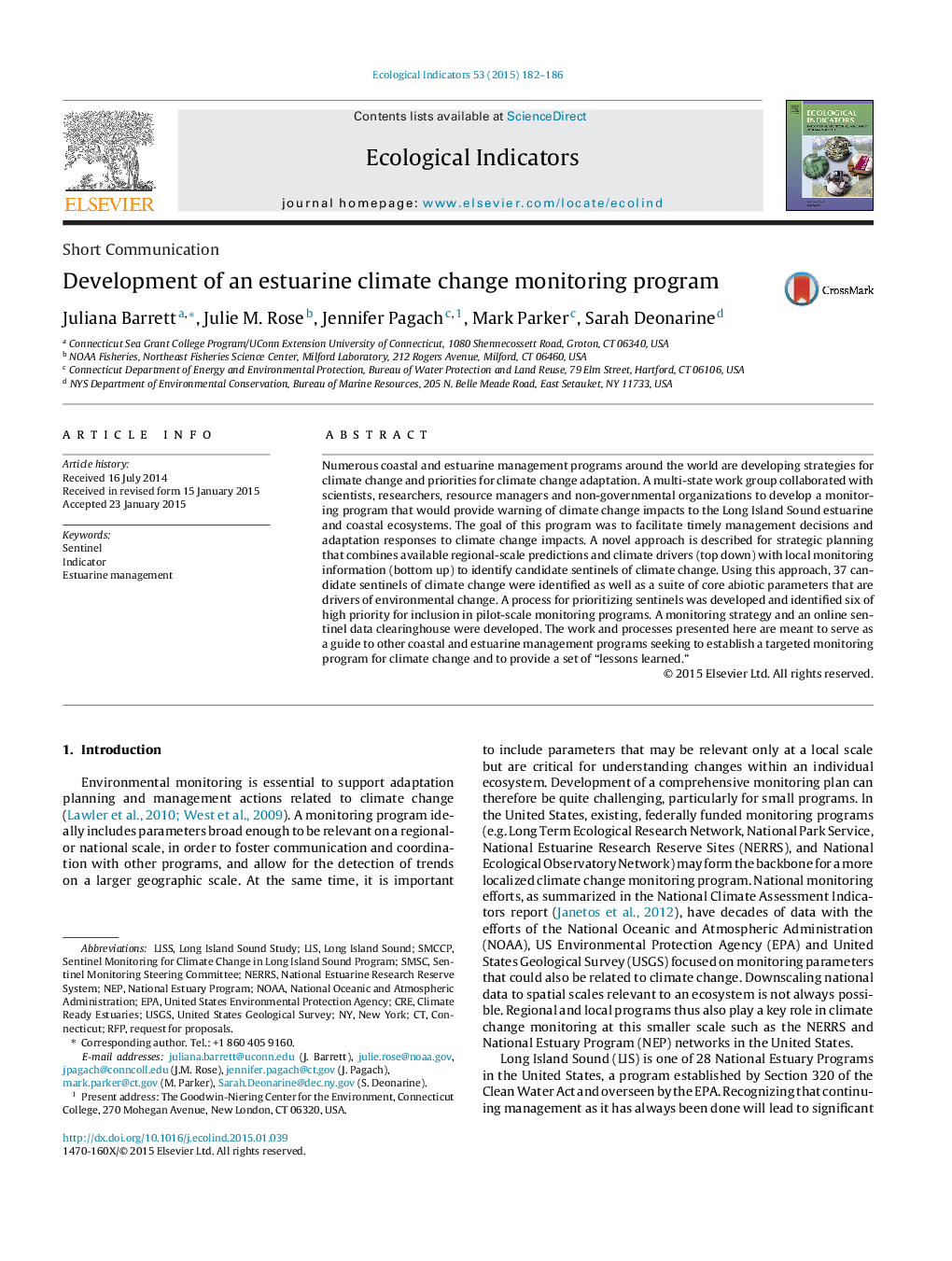| Article ID | Journal | Published Year | Pages | File Type |
|---|---|---|---|---|
| 6294435 | Ecological Indicators | 2015 | 5 Pages |
Abstract
Numerous coastal and estuarine management programs around the world are developing strategies for climate change and priorities for climate change adaptation. A multi-state work group collaborated with scientists, researchers, resource managers and non-governmental organizations to develop a monitoring program that would provide warning of climate change impacts to the Long Island Sound estuarine and coastal ecosystems. The goal of this program was to facilitate timely management decisions and adaptation responses to climate change impacts. A novel approach is described for strategic planning that combines available regional-scale predictions and climate drivers (top down) with local monitoring information (bottom up) to identify candidate sentinels of climate change. Using this approach, 37 candidate sentinels of climate change were identified as well as a suite of core abiotic parameters that are drivers of environmental change. A process for prioritizing sentinels was developed and identified six of high priority for inclusion in pilot-scale monitoring programs. A monitoring strategy and an online sentinel data clearinghouse were developed. The work and processes presented here are meant to serve as a guide to other coastal and estuarine management programs seeking to establish a targeted monitoring program for climate change and to provide a set of “lessons learned.”
Keywords
Related Topics
Life Sciences
Agricultural and Biological Sciences
Ecology, Evolution, Behavior and Systematics
Authors
Juliana Barrett, Julie M. Rose, Jennifer Pagach, Mark Parker, Sarah Deonarine,
